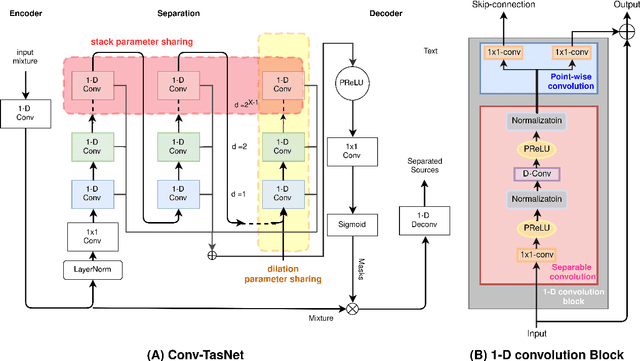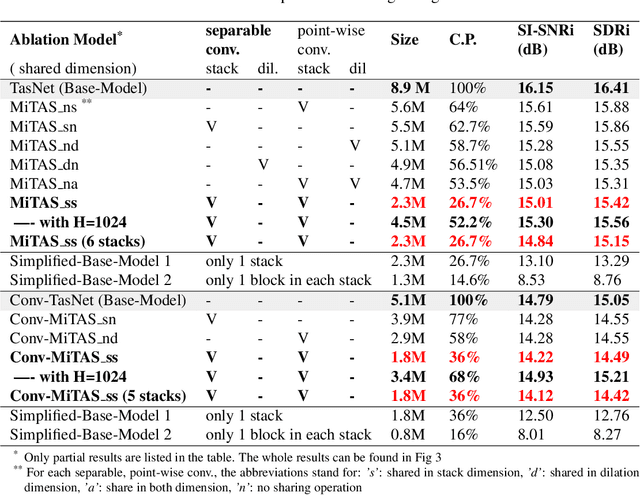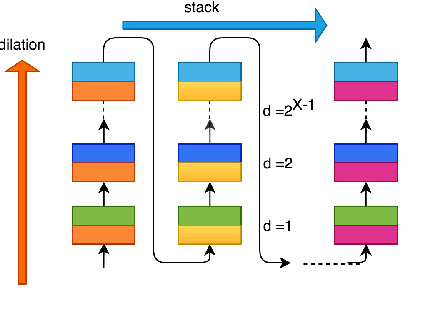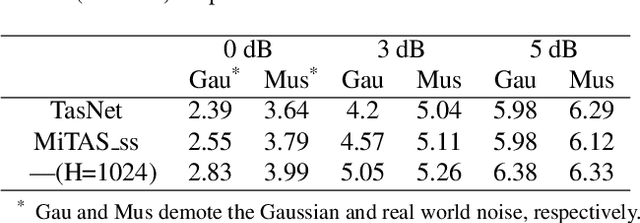MITAS: A Compressed Time-Domain Audio Separation Network with Parameter Sharing
Paper and Code
Dec 09, 2019



Deep learning methods have brought substantial advancements in speech separation (SS). Nevertheless, it remains challenging to deploy deep-learning-based models on edge devices. Thus, identifying an effective way to compress these large models without hurting SS performance has become an important research topic. Recently, TasNet and Conv-TasNet have been proposed. They achieved state-of-the-art results on several standardized SS tasks. Moreover, their low latency natures make them definitely suitable for real-time on-device applications. In this study, we propose two parameter-sharing schemes to lower the memory consumption on TasNet and Conv-TasNet. Accordingly, we derive a novel so-called MiTAS (Mini TasNet). Our experimental results first confirmed the robustness of our MiTAS on two types of perturbations in mixed audio. We also designed a series of ablation experiments to analyze the relation between SS performance and the amount of parameters in the model. The results show that MiTAS is able to reduce the model size by a factor of four while maintaining comparable SS performance with improved stability as compared to TasNet and Conv-TasNet. This suggests that MiTAS is more suitable for real-time low latency applications.
 Add to Chrome
Add to Chrome Add to Firefox
Add to Firefox Add to Edge
Add to Edge